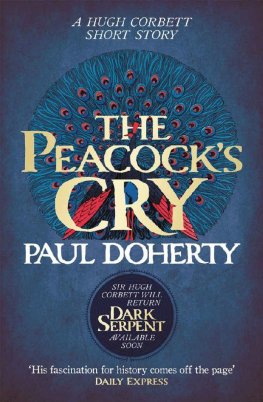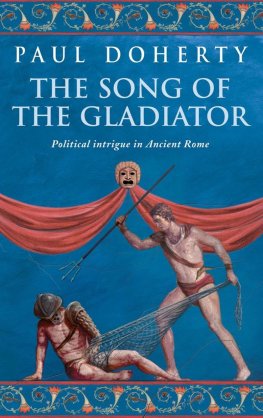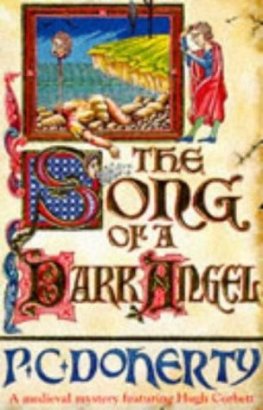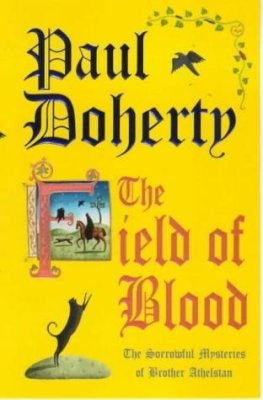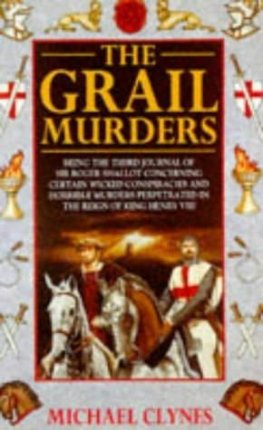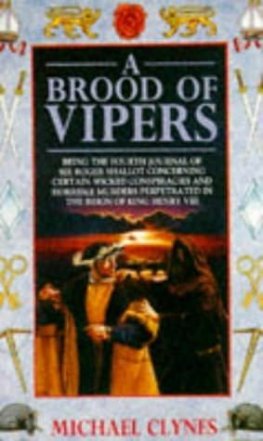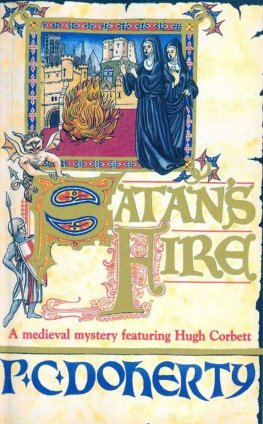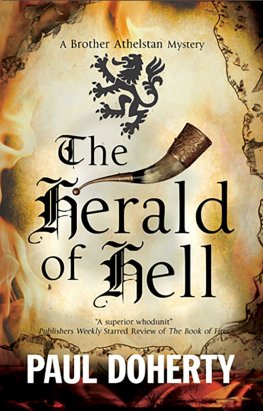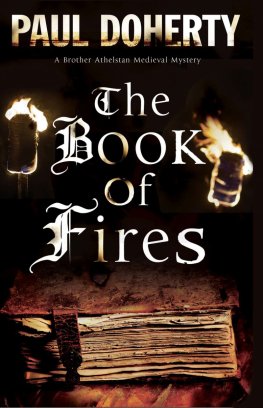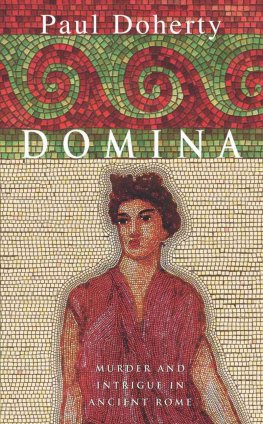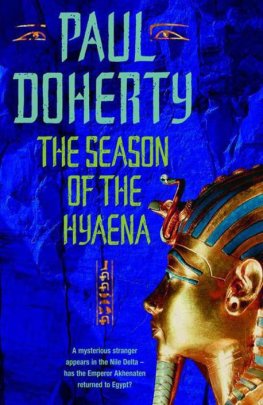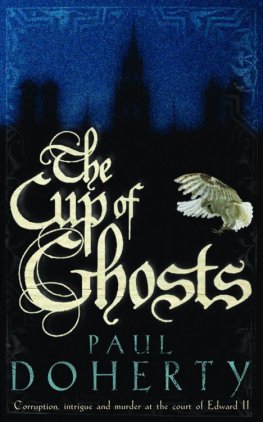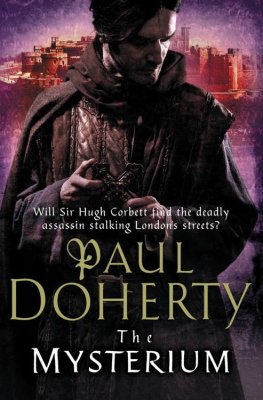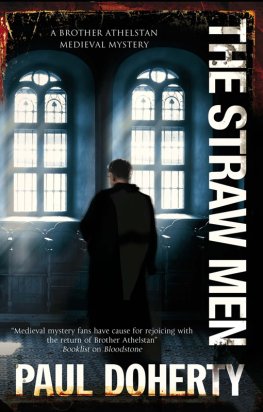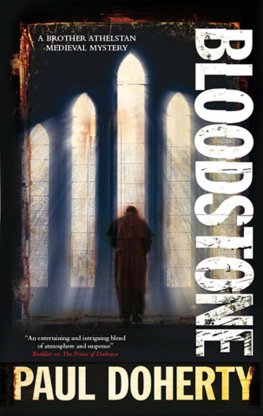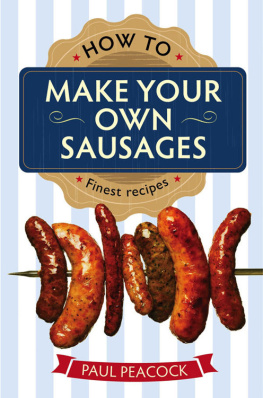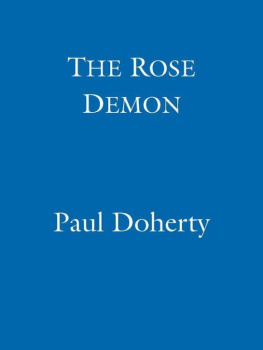Paul Doherty - The Peacock's Cry
Here you can read online Paul Doherty - The Peacock's Cry full text of the book (entire story) in english for free. Download pdf and epub, get meaning, cover and reviews about this ebook. year: 2016, publisher: Headline, genre: Detective and thriller. Description of the work, (preface) as well as reviews are available. Best literature library LitArk.com created for fans of good reading and offers a wide selection of genres:
Romance novel
Science fiction
Adventure
Detective
Science
History
Home and family
Prose
Art
Politics
Computer
Non-fiction
Religion
Business
Children
Humor
Choose a favorite category and find really read worthwhile books. Enjoy immersion in the world of imagination, feel the emotions of the characters or learn something new for yourself, make an fascinating discovery.
- Book:The Peacock's Cry
- Author:
- Publisher:Headline
- Genre:
- Year:2016
- ISBN:9781472233653
- Rating:3 / 5
- Favourites:Add to favourites
- Your mark:
- 60
- 1
- 2
- 3
- 4
- 5
The Peacock's Cry: summary, description and annotation
We offer to read an annotation, description, summary or preface (depends on what the author of the book "The Peacock's Cry" wrote himself). If you haven't found the necessary information about the book — write in the comments, we will try to find it.
The Peacock's Cry — read online for free the complete book (whole text) full work
Below is the text of the book, divided by pages. System saving the place of the last page read, allows you to conveniently read the book "The Peacock's Cry" online for free, without having to search again every time where you left off. Put a bookmark, and you can go to the page where you finished reading at any time.
Font size:
Interval:
Bookmark:
Paul Doherty
The Peacock's Cry
You hanged four men yesterday at the Sycamores, Sir Hugh?
No, Your Grace. I hanged four outlaws, wolfsheads, on the gallows close to the crossroads known as the Sycamores. In fact I hanged five such criminals, although one of them was already dead. I killed him when he tried to escape. I thought he should join his fellow malignants in death as he had been with them in life.
We passed their naked corpses dangling by the neck. We only counted four.
First, Your Grace, they werent naked when I hanged them, but times are hard. I suspect they were stripped before their flesh turned cold. As for the fifth corpse, well, as you know, wandering magicians and cunning men like to sell the various parts of a hanged man for medicinal purposes, though, Corbett added wryly, Ive never purchased such a thing myself.
Edward, King of England, scratched his nose and stared at his companion, Piers Gaveston, whom he called his beloved brother. Indeed, the king loved Gaveston so much, he had created him Earl of Cornwall, married him to a royal princess and appointed him leader of the Council. Because of Gaveston, Edward had told the great earls of the kingdom, led by Thomas, Earl of Lancaster, the kings own cousin, to go hang themselves, as he would never give up his Gascon favourite. The great nobles thought otherwise and they fiercely resented being ignored, both publicly and in private, in preference to Gaveston. Wiping the sweat from his face, Edward wondered how much of this was known to the man he and Piers were visiting, or had this enigmatic manor lord cut himself off from all gossip of the court?
You remember Sir Hugh Corbett, Piers?
I certainly do. The royal favourite grinned and stretched out his goblet for Corbett to refill with the delicious Bordeaux specially broached to mark the kings surprise visit to Corbetts manor of Leighton in the great forest of Epping. Gaveston noticed how Corbetts hand was steady as he poured. The manor lord seemed calm and poised, not flustered by the unexpected arrival of the royal entourage: a horde of men-at-arms, clerks and other retainers of the kings household, resplendent in their blue, gold and blood-red tabards. In fact, Corbett reminded Gaveston of a monk, with his inscrutable dark face, deep-set eyes and firm chin and mouth, his raven-black hair streaked with grey as closely cropped as any clerics. Corbett was not a man for ostentation; his jerkin and hose were of black fustian, the only concession to fashion being the pure white cambric shirt with its stiff collar, as well as the high-heeled Castilian riding boots and the metal-studded war belt, now looped over the newel of a leather-backed chair.
Gaveston raised his goblet in silent toast as the former royal clerk, once Keeper of the Secret Seal, turned to fill the kings cup. He took the opportunity to stare around Corbetts chancery chamber, the clerks secret room, closeted and sealed away at the heart of his spacious stately mansion, a place that even on a summers day was full of shifting shadows. The walls were covered in elm-wood panelling, the wood polished to a shine so it reflected the dancing, tongue-like flames of the beeswax candles. The purest turkey rugs on the floor deadened all sound. In the centre of the room stood a broad writing desk with a high-backed chair, on either side a quilted leather stool and a stack of small coffers and caskets. Gaveston noticed how all of these were both bolted and locked, and hid his smile. As ever, Corbett was a master of secrets.
I certainly do remember Sir Hugh, he repeated, as do you, Your Grace, he added teasingly. Indeed, you remember him every day. Sir Hugh? Gaveston gestured at Corbett. His Grace the king needs you. He wants you to kiss hands and accept the seals of high office. During the reign of his father, Edward I of blessed memory, you were Keeper of the Secret Seal. According to the old king, you held that office because you were the only man he ever trusted. In that he was right. He trusted you, I trust you and the king trusts you. Surely the wishes of both the king and myself matter?
Of course. Corbett cradled his own goblet and kept his face impassive. The former royal clerk had expected this visit, but not so swift, so unannounced. The kings party, pennants and banners fluttering, had thundered through the manor gates, scattering Corbetts retainers as they returned home after hearing Mass in the nearby chapel. They had arrived bristling with self-importance, but Corbett was determined not to be cowed or outfaced. He was well versed in the temper tantrums of the royal family. Edward I, the kings father, had been notorious for his ferocious anger; implacable and, if sorely baited, highly dangerous. Not a day passed when Corbett did not recall the old kings rugged warriors face, sharp black eyes full of fury, fingers constantly rapping the table or falling to caress the hilt of his sword or dagger.
Corbett had kept himself informed in his own secret way of the doings of the court. He knew all about the recent war in Scotland. How Edward I had swept through that country with fire and sword, proclaiming himself Gods anger incarnate against the Scots. Now the old king was dead. Four years earlier, in July 1307, suffering from a virulent disease of the bowel, he had risen from his bed, given a soul-wrenching cry and fallen back into the arms of his retainers. Edward of Caernarvon, his son and heir, had immediately recalled his troops out of Scotland and brought back his favourite, Gaveston, from exile. Corbett knew that things had changed, and he wondered if they were going to change yet again.
What do they say about us? Edward stretched out a booted foot to softly kick Corbetts leg.
The truth, Your Grace? Corbett gently kicked back.
The truth, Gaveston declared.
There you have it. Corbett grinned.
What do you mean?
I ask the king a question, and you Corbett pointed at Gaveston answer it. Your Grace, my lord, thats proof enough. You are inseparable. You are of one mind and one will, thats what people say about you.
Corbett needed to move. As he rose to his feet, so did the king, though Gaveston remained seated. Corbett glanced swiftly at the door, then at his war belt looped over the chair. He did not fully trust the king. Edward II was over six feet tall, broad-shouldered, with the long legs of a born horse rider and the wiry arms of a swordsman. He was handsome-faced, slightly olive-skinned, a striking contrast to his golden hair and neatly clipped beard and moustache. He had heavy-lidded blue eyes, the right one slightly drooping, which made him look as if he mistrusted the whole world, an impression heightened by the wry twist to his mouth. A strong man, a warrior and, in truth, very dangerous. Corbett recognised this and was highly wary of this weathercock prince, whose mood could change at the twirl of a coin. If obstructed, Edward could give vent to the most violent tantrums, lashing out and kicking whoever opposed him.
The king now had his back to Corbett and was communicating secretly with Gaveston, using the sign language learnt from Cistercian monks, a code, a cipher only the king and his reputed lover understood. Gaveston, Corbett reflected, studying the favourite closely, was easier to deal with. A truly beautiful man, elegantly dressed; even his hunting clothes exuded the most delicate perfume. As tall as Edward, with dark hair and fair smooth-shaven skin, he appeared golden-faced, soft-eyed and fair-lipped. At first glance he could be regarded as rather delicate, but this was an illusion. Gaveston was a born fighter, a skilled swordsman and a champion in the tournament.
Why did you hang those men? Edward turned, cocking his head at the sound of two of his jesters, Maud Make-joy and Magote the Ape, shrieking with laughter as they entertained Lady Maeve, Corbetts wife, and their two children, Edward and Eleanor.
Font size:
Interval:
Bookmark:
Similar books «The Peacock's Cry»
Look at similar books to The Peacock's Cry. We have selected literature similar in name and meaning in the hope of providing readers with more options to find new, interesting, not yet read works.
Discussion, reviews of the book The Peacock's Cry and just readers' own opinions. Leave your comments, write what you think about the work, its meaning or the main characters. Specify what exactly you liked and what you didn't like, and why you think so.

